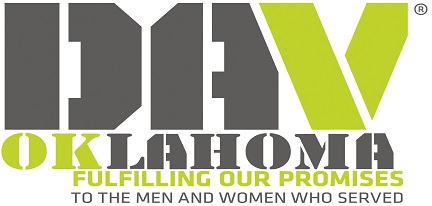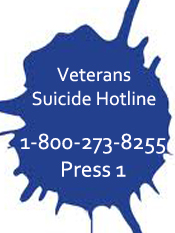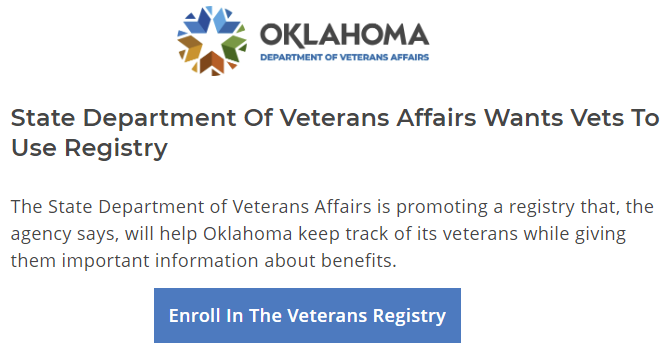Congress moved closer Monday to approving help for tens of thousands of veterans exposed to toxic “burn pits” in Iraq and Afghanistan.
The “Helping Veterans Exposed to Burn Pits Act” passed the Senate as part of the National Defense Authorization Act for Fiscal Year 2018 but still needs to pass the House.
Health effects from exposure to chemicals found in burn pits may include cancer, neurological effects, reproductive effects, respiratory toxicity, and cardiovascular toxicity. Studies suggest that troops who worked in these areas are subject to higher rates of asthma, emphysema, and rare lung disorders.
Help for veterans exposed to burn pits
Senate defense bill goes for final vote
Senators are poised to approve a massive $700 billion defense bill Monday night, setting the stage for a budget fight on how to fund a major increase in military spending.
The plan, like its counterpart in the House, surpasses budget caps of $549 billion for defense spending and will require new congressional action to be enacted. Without it, the effort could trigger automatic, across-the-board budget cuts.
Opponents have already thwarted earlier efforts to lift or repeal the caps. Among them, Democrats are angling for non-defense spending increases in exchange for a larger defense deal.
“Democrats are thinking they are going to have more leverage” when a budget fight comes later this year, said Lauren Fish, a defense strategies research associate for the Washington think tank Center for a New American Security. “It’s a political game to what is a very serious budgetary problem.”
There’s plenty at stake. For example, the Senate’s version of the 2017 National Defense Authorization Act proposes pay raises for servicemembers, funding of new ships and aircrafts and boosting missile defense as part of a larger effort to address years of cutbacks and readiness concerns.
Veterans Treatment Court needs your voice
The veterans’ treatment court model was established to remove veterans from the regular criminal justice process and to provide an opportunity for the veteran to address conditions such as post-traumatic stress disorder and substance abuse disorder that that may have led to their involvement in the justice system. In a veterans’ treatment court, the presiding judge works with the veteran and a Department of Veterans Affairs (VA) Veterans Justice Outreach specialist to establish a structured rehabilitation program and treatment plan that is tailored to the specific needs of the individual veteran.
S. 946, the Veterans Treatment Court Improvement Act of 2017, requires the VA to hire additional Veterans Justice Outreach (VJO) specialists to ensure veterans have greater access to effective and tailored treatment.
The bill authorizes $5.5 million for each fiscal year beginning in FY 2017 through 2027 to hire 50 additional VJO Specialists. Funding priority would be given to VA facilities that work with newly established or existing but understaffed veterans’ treatment courts. The legislation requires annual reporting on the implementation of the bill as well as its effect on the VJO program and a mandate for the Government Accountability Office to review and report on the implementation of the bill and the overall effectiveness of the VJO program for justice-involved veterans.
DAV Resolution No. 105 notes that veterans’ treatment courts evolved from a proven national model of diversionary drug and mental health courts to address the specific challenges many wartime veterans face post service and calls for the continued growth of veterans’ treatment courts.
Please use the prepared letter to write to your Senators and request support and passage of S. 946, the Veterans Treatment Court Improvement Act of 2017. Thank you for your efforts and support of the Commander’s Action Network.
Click the link below to log in and send your message:
https://www.votervoice.net/Bro
Concurrent Receipt Amendment Support:
The FRA is asking that veterans support Senator Dean Heller’s amendment to H.R. 2810 that provides for comprehensive concurrent receipt reform. This amendment provides payment of full military retired pay and veterans’ disability compensation for all disabled retirees. Currently only some of the military retirees with 20 or more years of service receive concurrent receipt. Only those receiving Concurrent Retirement and Disability Pay (CRDP) with a 50 percent or higher service-connected disability rating have concurrent receipt effective January 1, 2014. CRDP beneficiaries with less than 50 percent disability rating and also none of those medically retired with less 20 years of service (Chapter 61) are not eligible for concurrent receipt. This amendment will allow all CRDP retirees to receive concurrent receipt.
Welcome Home, Col. Ronald Scott:
As reported September 14 by Tom Fink for CNHI News, Air Force Col. Ronald Scott’s remains have been identified 50 years after his loss. According to DPAA, Scott was declared missing in action following an explosion during an armed reconnaissance mission over northern Vietnam in 1966. A recovery team collected material from the site in 2014. Additional recovery operations were conducted in 2015 and 2016. Remains were sent to the Central Identification Laboratory for analysis, and Scott’s remains were identified through DNA analysis, dental analysis and other circumstantial evidence. He will be honored at a graveside service in Woodlawn Cemetery, in Claremore, on Sept. 22.
Col. Scott will arrive at the Tulsa airport on Thursday, September21, 2017 where members of the Patriot Guard, Combat Veterans Motorcycle Association, and others will escort Col Scott to Claremore.
Prescription filling options ► new express script policy:
Beginning Sept. 15, 2017, Express Scripts will need annual consent from patients who want to receive automatic refills of their maintenance medications enrolled in TRICARE Pharmacy Home Delivery. This means that just before one of your prescriptions runs out of refills, Express Scripts will reach out to you to know if you would like your doctor to be contacted to renew the prescription and if you’d like to continue in the Automatic Refill program. If not, Express Scripts will not refill your prescription. “This new process gives beneficiaries more control over their medications and keeps the convenience of automatic refills,” said Amy Aldighere, Express Scripts Sr. Director – DoD Program Management. “It also makes it easier to opt out of the Auto Refill program and helps to prevent beneficiaries from receiving medications that they no longer need or shouldn’t receive.”
VA Women Vet Programs ► H.R.2452 | Deborah Sampson Act:
Representative Elizabeth Esty introduced the Deborah Sampson Act (H.R.2452/S.681) This comprehensive measure addresses gender disparities and would improve and expand programs and services for women veterans provided by the Department of Veterans Affairs (VA).
If enacted, this bill would establish a pilot program for peer-to-peer counseling and make permanent group counseling retreats for women veterans recently separated from military service. It would increase training for providers delivering gender-specific care, expand days of care for newborns from seven to fourteen, authorize medically-necessary transportation for newborns, address privacy and security issues for women in VA health care facilities and correct infrastructure issues to improve the environment of care for women. The legislation would also create a program to assist women veterans with legal services, authorize additional grants for organizations supporting women veterans with families and require data collection regarding women and minority veterans including a report on the availability of prosthetics for women veterans.
Surviving family members will get more money, but less time
Besides access to Yellow Ribbon, spouses and children of service members who died in the line of duty on or after 9/11 will also see their monthly education stipend from the Survivors’ and Dependents’ Educational Assistance Program increase by $200. There’s a downside, however. Though the same program has previously provided 45 months of education benefits, that will decrease to 36 months in August 2018 to bring it in line with the provisions of the GI Bill.
VA compensable disabilities ► top 10 overlooked by vets:
1. Erectile Dysfunction
2. Agoraphobia – The essential feature of Agoraphobia is anxiety about being in (or anticipating) situations from which escape might be difficult or in which help may not be available in the event of having a Panic Attack (or panic-like symptoms). Oftentimes, when in this situation, an individual may have the vague thought that something dreadful may happen. Such concerns must persist for at least 6 months and occur virtually every time an individual encounters the place or situation (especially those that remind a veteran of battle situations).
3. Keloids – A scar that rises quite abruptly above the rest of the skin. It is irregularly shaped, usually pink to red in color, tends to enlarge progressively, and may be harder than the surrounding skin. Keloids are a response to trauma, such as a cut to the skin. In creating a normal scar, connective tissue in the skin is repaired by the formation of collagen. Keloids arise when extra collagen forms.
4. Sexually Transmitted Diseases – There are certain diseases based on specific codes which may be compensable 5. Pseudofolliculitis Barbae – a common condition of the beard area occurring in men and other people with curly hair. The problem results when highly curved hairs grow back into the skin causing inflammation and a foreign body reaction. Over time, this can cause scarring which looks like hard bumps of the beard area and neck..
6. Plantar Fasciitis
7. Pleurisy
8. Tropical Phagedena (Jungle Rot) – Tropical phagedena, Aden ulcer, Malabar ulcer, and jungle rot (from Vietnam) , as well as various native terms. It occurs on exposed parts of the body, primarily the legs, arms, and feet. Frequently on pre-existing abrasions or sores, sometimes beginning from a scratch. As a rule, only one extremity is affected and usually there is a single lesion, although it is not uncommon to find multiple ulcers on two or more body parts.\
9. Hemorrhoids
10. Sleep Terror Disorder – Sleep terror disorder is also known as night terrors. Sleep terror is characterized by the following symptoms that a mental health professional looks for when making a diagnosis for this condition:
• Recurrent episodes of abrupt awakening from sleep, usually occurring during the first third of the major sleep episode and beginning with a panicky scream.
• Intense fear and signs of autonomic arousal, such as tachycardia, rapid breathing, and sweating, during each episode.
• Relative unresponsiveness to efforts of others to comfort the person during the episode.
No detailed dream is recalled and there is amnesia for the episode.
• The episodes cause clinically significant distress or impairment in social, occupational, or other important areas of functioning.
• The disturbance is not due to the direct physiological effects of a substance (e.g., a drug of abuse, a medication) or a general medical condition.
Agent Orange diseases update
VA Secretary David J. Shulkin will decide “on or before” Nov. 1 whether to add to the list of medical conditions the Department of Veteran Affairs presumes are associated to Agent Orange or other herbicides sprayed during the Vietnam War, a department spokesman said Tuesday in response to our enquiry. Any ailments Shulkin might add to VA’s current list of 14 “presumptive diseases” linked to herbicide exposure would make many more thousands of Vietnam War veterans eligible for VA disability compensation and health care. Ailments under review as possible adds to the presumptive diseases list include bladder cancer, hypothyroidism and Parkinson-like symptoms without diagnosis of that particular disease. But hypertension (high blood pressure) and stroke also might be embraced, or ignored, as part of the current review.




